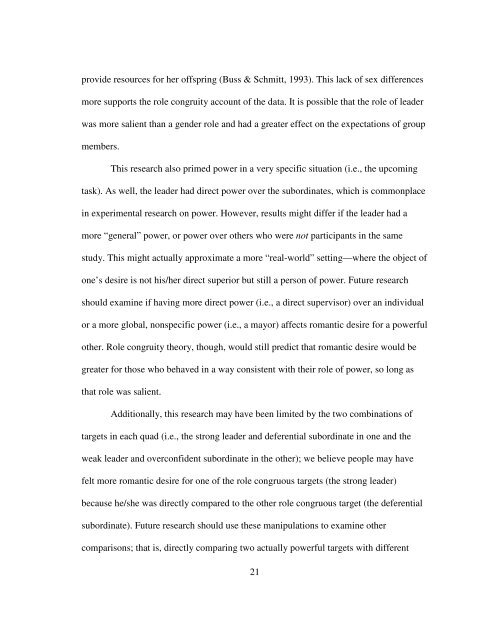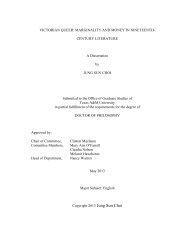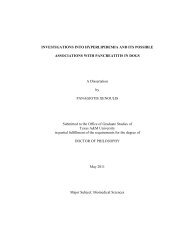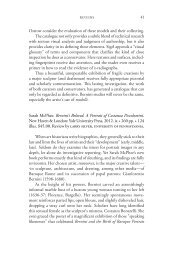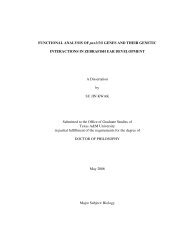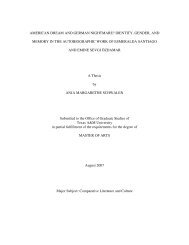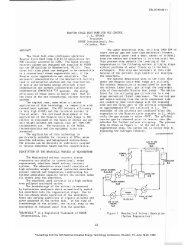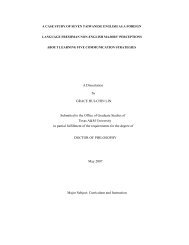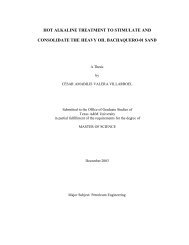A ROLE CONGRUITY ACCOUNT OF ROMANTIC ... - Repository
A ROLE CONGRUITY ACCOUNT OF ROMANTIC ... - Repository
A ROLE CONGRUITY ACCOUNT OF ROMANTIC ... - Repository
You also want an ePaper? Increase the reach of your titles
YUMPU automatically turns print PDFs into web optimized ePapers that Google loves.
provide resources for her offspring (Buss & Schmitt, 1993). This lack of sex differences<br />
more supports the role congruity account of the data. It is possible that the role of leader<br />
was more salient than a gender role and had a greater effect on the expectations of group<br />
members.<br />
This research also primed power in a very specific situation (i.e., the upcoming<br />
task). As well, the leader had direct power over the subordinates, which is commonplace<br />
in experimental research on power. However, results might differ if the leader had a<br />
more “general” power, or power over others who were not participants in the same<br />
study. This might actually approximate a more “real-world” setting—where the object of<br />
one’s desire is not his/her direct superior but still a person of power. Future research<br />
should examine if having more direct power (i.e., a direct supervisor) over an individual<br />
or a more global, nonspecific power (i.e., a mayor) affects romantic desire for a powerful<br />
other. Role congruity theory, though, would still predict that romantic desire would be<br />
greater for those who behaved in a way consistent with their role of power, so long as<br />
that role was salient.<br />
Additionally, this research may have been limited by the two combinations of<br />
targets in each quad (i.e., the strong leader and deferential subordinate in one and the<br />
weak leader and overconfident subordinate in the other); we believe people may have<br />
felt more romantic desire for one of the role congruous targets (the strong leader)<br />
because he/she was directly compared to the other role congruous target (the deferential<br />
subordinate). Future research should use these manipulations to examine other<br />
comparisons; that is, directly comparing two actually powerful targets with different<br />
21


